An IPS-partnered initiative has developed a comprehensive online training course for professionals working with convicted children, offering juvenile justice services an accessible and updated program focused on implementing measures within a child-friendly justice framework.
Imagine a justice system where every child’s rights are upheld to the highest standard. This is the essence of ‘child-friendly justice’, a concept rooted in ensuring the best interests of the child, dignity, and protection against discrimination, while also considering the child’s level of maturity, understanding, and the specific circumstances of each case (Council of Europe, 2010).
The Charter of Fundamental Rights of the European Union (2016) establishes several rights of relevance to children in judicial proceedings, including human dignity, the prohibition of torture and inhuman or degrading treatment or punishment, and the right to an effective remedy. These rights are further affirmed in the United Nations Convention on the Rights of the Child (UN, 1989).
With these key guiding instruments, child-friendly justice is characterised by accessibility, age-appropriateness, efficiency, diligence, and an adaptation to children’s specific needs and rights (Council of Europe, 2010).
Research indicates that involvement with the justice system can have a detrimental impact on young people’s development, with time spent in juvenile justice institutions often resulting in increased recidivism, trauma, and anxiety (Orendain et al., 2022). It is the professionals who act as ‘gatekeepers’—in a literal sense—but also through their key role in controlling the approaches taken to rehabilitate justice-involved youth.
In light of these concerns, and in alignment with the principles of child-friendly justice, it is essential for juvenile justice administrators and professionals to prioritise interventions that promote youth development rather than relying on coercive practices. This shift can be achieved through capacity-building initiatives aimed at professionals engaged in the social reintegration of young offenders (Anderson et al., 2025).
It is within this context that the IPS-partnered initative ARISA Child was designed. Funded by the European Union under the European Commission’s Justice Programme (2021–2027), the initiative aims to share best practices and expand the knowledge of juvenile justice professionals regarding their work with children and young people, ensuring respect for their rights and addressing their specific needs.
To achieve its objectives, the ARISA Child project has implemented various initiatives, including a Needs Analysis across 10 European Union countries to identify the specific training needs of juvenile justice professionals in relation to their work with justice-involved youth.
The findings of this analysis revealed a significant lack of training for professionals in areas such as child-friendly justice, child psychology, and trauma-informed care. This lack of training hinders professionals’ ability to engage constructively with young people, ultimately affecting efforts to address the root causes of juvenile delinquency and support their rehabilitation.
To address these challenges, the initiative has developed a comprehensive online training course titled “Enhanced Capacity Training for Professionals Working with Convicted Children”.
This course, available in six languages (Bulgarian, English, Greek, Italian, Portuguese and Spanish), provides juvenile justice services with an accessible, updated online training programme on the implementation of measures within a child-friendly justice framework. The goal is to strengthen the competencies of professionals, by offering an effective, rights-based, and needs-oriented approach.
The course has an approximate duration of eight hours, and covers key topics such as:
- Rights of justice-involved youth;
- Child and adolescent development & psychology;
- Vulnerabilities and diversity;
- Child-friendly communication;
- Collaboration with families, institutions, and communities;
- Information and Communication Technology skills;
- Resilience-building.
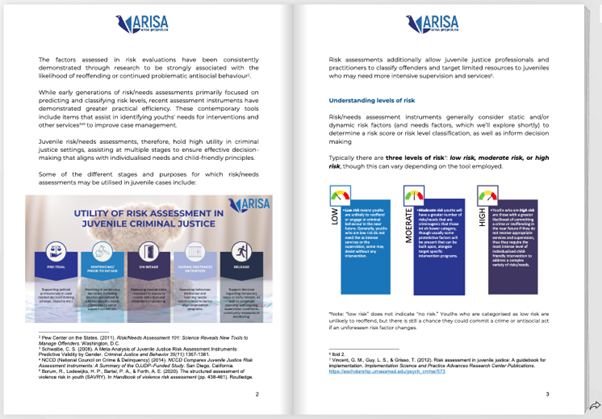
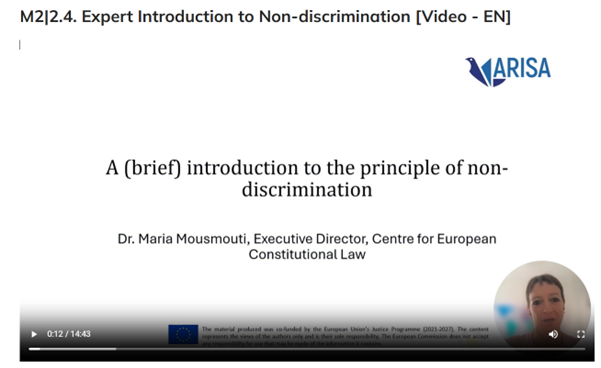
We invite all professionals working in the juvenile justice system to enrol in the course and become part of the movement towards a more just, informed, and supportive approach to working with children and young people in conflict with the law.
You can enrol in the ARISA Child course here.
Should you require any assistance or have any questions, please don’t hesitate to contact us at:
- Claire Machan | [email protected]
- Heloisa Becker | [email protected]
References
Anderson, A. N., Edgemon, A. K., Sheridan, D., & Rapp, J. T. (2025, February 6). Training staff in a juvenile residential facility to implement non-coercive behavior management procedures. Residential Treatment for Children & Youth.
Council of Europe. (2010). Guidelines of the Committee of Ministers of the Council of Europe on child-friendly justice. Council of Europe.
European Union. (2016). Charter of fundamental rights of the European Union (2016/C 202/02). Official Journal of the European Union.
Orendain, N., Galván, A., Smith, E., Barnert, E. S., & Chung, P. J. (2022). Juvenile confinement exacerbates adversity burden: A neurobiological impetus for decarceration. Frontiers in Neuroscience, 16, 1004335.
United Nations. (1989). Convention on the rights of the child (A/RES/44/25). United Nations.
Know more about this project
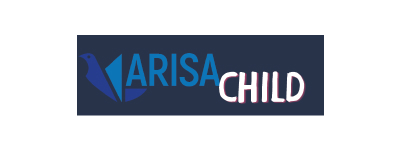
ARISA Child
Assessing the Risk of Isolation of Sentenced and Accused: Enhancing the Capacity of Correctional Services to Work with Convicted Children
The consortium developing this initiative is led by the Center for the Study of Democracy (Bulgaria), and partnered by IPS_Innovative Prison Systems (Portugal), the Centre for European Constitutional Law (Greece), Antigone (Italy), the Centre for the Study and Prevention of Crime (Spain), and the General Directorate Execution of Sentences (associated partner, from Bulgaria).
To know more about ARISA Child, please visit the project’s page.
Related projects
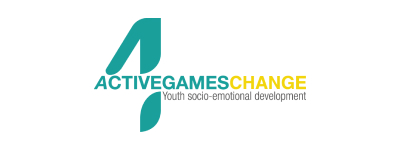
Active Games 4Change
Sport and physical activity learning environment for citizenship, emotional, social and e-competences training

EIGEP
European Interaction Guidelines for Education Professionals when working with Children in Juvenile Justice Contexts

FRAME GANG
European Framework of Competences for Community Professionals in Gang Environments
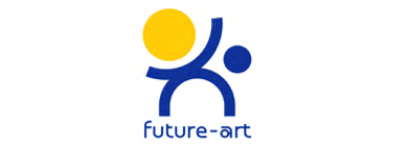
FUTURE-ART
Sentinels of the Future: Together to Eradicate Human Trafficking
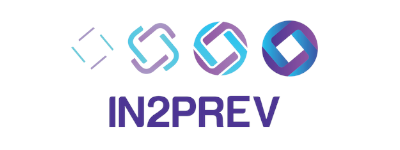
IN2PREV
Law enforcement and community cooperation and training approach to prevent radicalisation by ensuring refugees’ successful inclusion
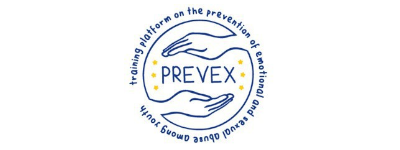
PREVEX
Preventing Emotional and Sexual Abuse Among Young People
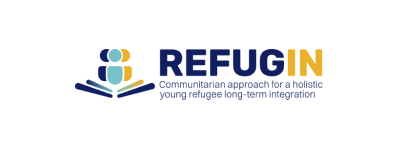
REFUGIN
Communitarian approach for a holistic young refugee long-term integration

REUNION
Rehabilitation of foreign inmates within the scope of FD 2008/909/JHA
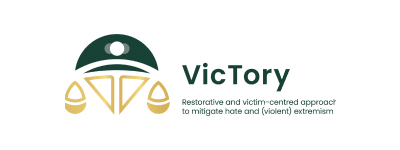
VicTory
Restorative and victim-centred approach to mitigate hate and (violent) extremism
Related news

JUSTICE TRENDS Magazine Launches 14th Edition: Expanding the Frontiers of Rehabilitation Support
Read More »
Pioneering new approaches to the integration of people who have been sentenced: Key insights for correctional professionals across Europe
Read More »
Older women in prison: Exploring intersectional vulnerabilities and sharing insights with the scientific community
Read More »
Building pathways to crime prevention through Community Policing and Rehabilitative Justice
Read More »



